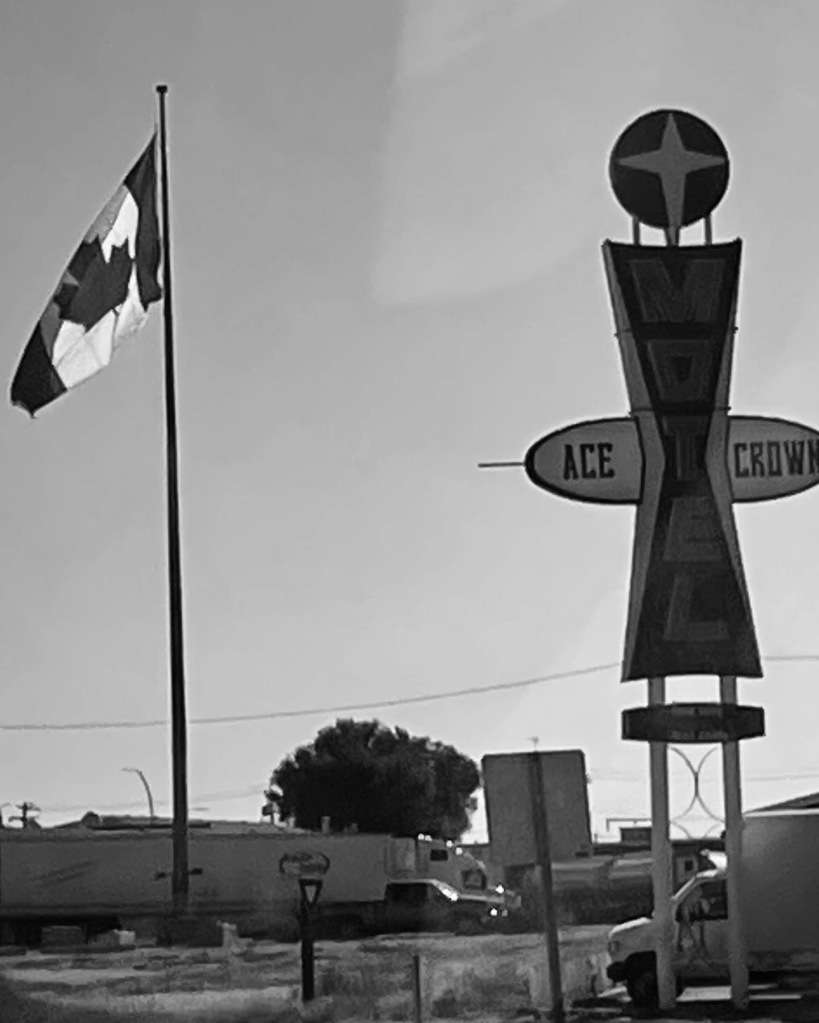A book of poems sometimes contains particular points of resonance that are so now, not just topical but that ripple-realm of I and another I fusing into a momentary yes of “we,” the too-infrequently invoked subject position pronoun that is at the gut-brain-heart of Nikki Reimer’s new collection/in-terror-gation No Town Called We. That the opening poem contains this line: “I asked the cat what comes next” is pure bonus. The cat in the lap of the present is a suitable collaborator after all. Reimer takes that vital pronoun, we, and never lets up in this four-part textualizing, tossing it within the slashed lines of This is Not my Beautiful Horse (of course a Talking Heads echo), the disruptions of the pandemic, hyper-development in Calgary, the oil lie in Oil and Gas Don’t Love We Back, and the piece that first truly leapt for me, “Regress or be Destroyed,” which pointedly states a truth most of us are unwilling to voice, that we are, in the Canadian poetry universe, forgetting the “we” of creating communities and honouring our elders, not just the first “I” book, the yearned for “I” gold stars. This poem yawps: “where/ we once had a seat at the table of discourse, we no longer know the/terms of reference” (thus the necessity for critical reviewing and intelligent conversing) and then, more painfully, “our poetry elders have begun to die. was this what we/had planned for our one “wild and precious” life? (I’ll break off here to state that although I mostly loathe Oliver’s contrived verse, Reimer, in several pieces in this book, recuperates their potential) “I don’t want this/anxiety of fading influence…I want to sit at the table of the elders, I want to/set a place for communal discourse.” Yes. I slept and woke and wrote after reading these lines: How are we so soon effaced. What is our poetry model now? Emerge young, get an MFA, a first book to much foofarah, rake in the stars, then fail, fall, vanish into teaching, muck about with the plagiarism machine, say whatever, repeat. No. What about those who go on and go deep. Where is their value, their sustaining. We need the foundation. Not a poetry model of consume fast, then die. No Town Called Poetry, indeed.

Poems that provoke one to think, and in rhythmic ways. So necessary. The ability to drop contemporary allusions in like Netflix, plastic strips, Twitter, espresso, etc and it not to be a superficial skimming but core keys to ailments, contradictions, mercies. The plunging acknowledgement that, “True horror lies in having any kind of body at all” (Heart Hunger Made Fashion) or the brute parallelism of, “Yes Climate is to Weather as Sex is to Death” (Is it PTSD or Is It Cake?). Unafeard. The poet’s neighbourhood, Claresholm, makes multiple appearances as the utter local and filters the whole world’s blank angsts too. Grief. Tupperware. The Ukrainian Baba. Cats who are maudlin. Yeats wavers. There are traces of Christakos, McCafferty, Legris. O, this line: “there’s too much poetry inside the brains/of the grieving” (We Miss “Community”). Ugh, yes. Some perhaps are too much sketches towards than fleshings-out. But this happens also in life. As with the final brutal sequence of Mondays in which migraine-times elaborate anxiety, agony (The iLL Symbolic). Having experienced these cortexical-explosions, this series was almost unbearable to read but, with its elisions of grammar, random capitals and discombobulated syntax it deftly weaves Lisa Robertson’s The Weather threads into “The amazing repeated recall” of “Eager polymorphous disorder” or “meteorological listlessness” where from “a childhood marred” we now “attack time.” Reimer is unyielding in taking us to that place where/from which we can ask why is we not, where is we, when will we arrive, wherefore we, what happens when we ween ourselves off we, what ruptures wail.